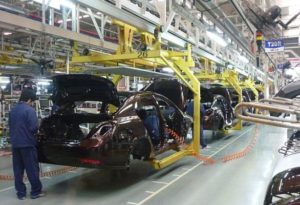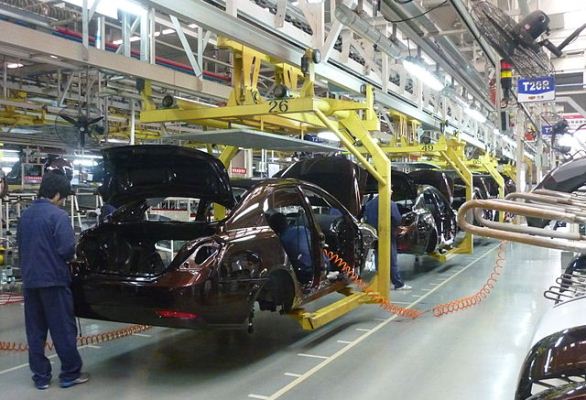 The automotive logistics sector is undergoing fundamental change as manufacturers and suppliers adjust to new technology that is reshaping operations and business models, according to the latest report from Transport Intelligence (Ti).
The automotive logistics sector is undergoing fundamental change as manufacturers and suppliers adjust to new technology that is reshaping operations and business models, according to the latest report from Transport Intelligence (Ti).
Thomas Cullen, senior analyst and co-author of the “Automotive Supply Chain and Logistics 2018” report, stated: “Logistics in the automotive sector is undergoing more change than at any time in the past 40 years.”
He cited two major drivers of this change—the growth of new markets, especially in China but in other regions as well, and, more importantly, new technology.
“The greatest change is being wrought by new technology. The internal combustion engine is gradually being replaced by electrical power and electronic control systems.”
The implications for the automotive supply chain and the nature of vehicle production are huge and will be reflected in the changed nature of logistics, he added. “Not only will the sources of components be different but the nature of those components and the way they are moved about within any assembly plant will be profoundly unlike what has gone before.”
The report further noted how production strategies in the sector are evolving, supply chains are becoming more complex, logistics costs are changing, and emerging markets are becoming more important, all of which are shaping the future of the sector.
The report forecasts implications on logistics and supply chains with the development of electric car manufacturing, new digital guidance technology, changing manufacturing materials usage, and much more.
John Manners-Bell, Ti’s CEO and co-author, stated: “The automotive sector may become unrecognizable in time, driven by trends often referred to as Industry 4.0. These trends include the likely widespread adoption of electric vehicles, with all the attendant disruption this will have on engine production and spare parts logistics, to name just two key areas.”
He foresees that in five to 10 years’ time, “automotive supply chains are likely to look very different, although with the billions of dollars already invested in existing plants and production processes, change may be slower than many believe.”
There are numerous concrete examples of how supply chains will be forced to adjust, said Ti, a global provider of research and analysis dedicated to the global logistics industry.
For example, all-electric propulsion will see the requirement for an engine plant disappear, with logistics focus shifting to the management of battery production and the movement of batteries to assembly plants.
Additionally, changing materials use will change the nature of the “frame shop,” the feeding of steel coil will reduce or disappear and carbon fiber fabrication facilities will be created, feeding assemblies into the primary plant.
New digital guidance technology could see a significant part of assembly operations become similar to that of IT hardware such as PCs or mobile phones.
Overall, there will be a dramatic fall in the level of assembly activity needed inside vehicle manufacturing plants, and this will have an enormous impact on logistics and supply chain management.
Cullen concluded: “Many LSPs [logistics service providers] face the need to rethink their business models. Not only will they have to deal with issues such as the changed pattern of globalization, they will have to adapt to new operational activity by vehicle manufacturers and component suppliers.”
Photo: Siyuwj





